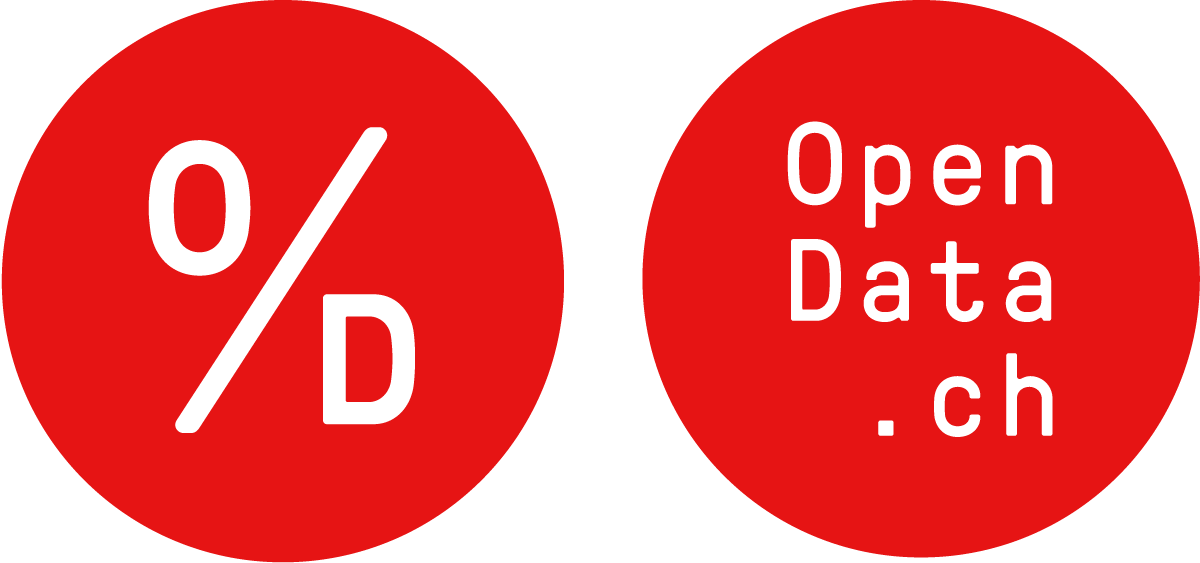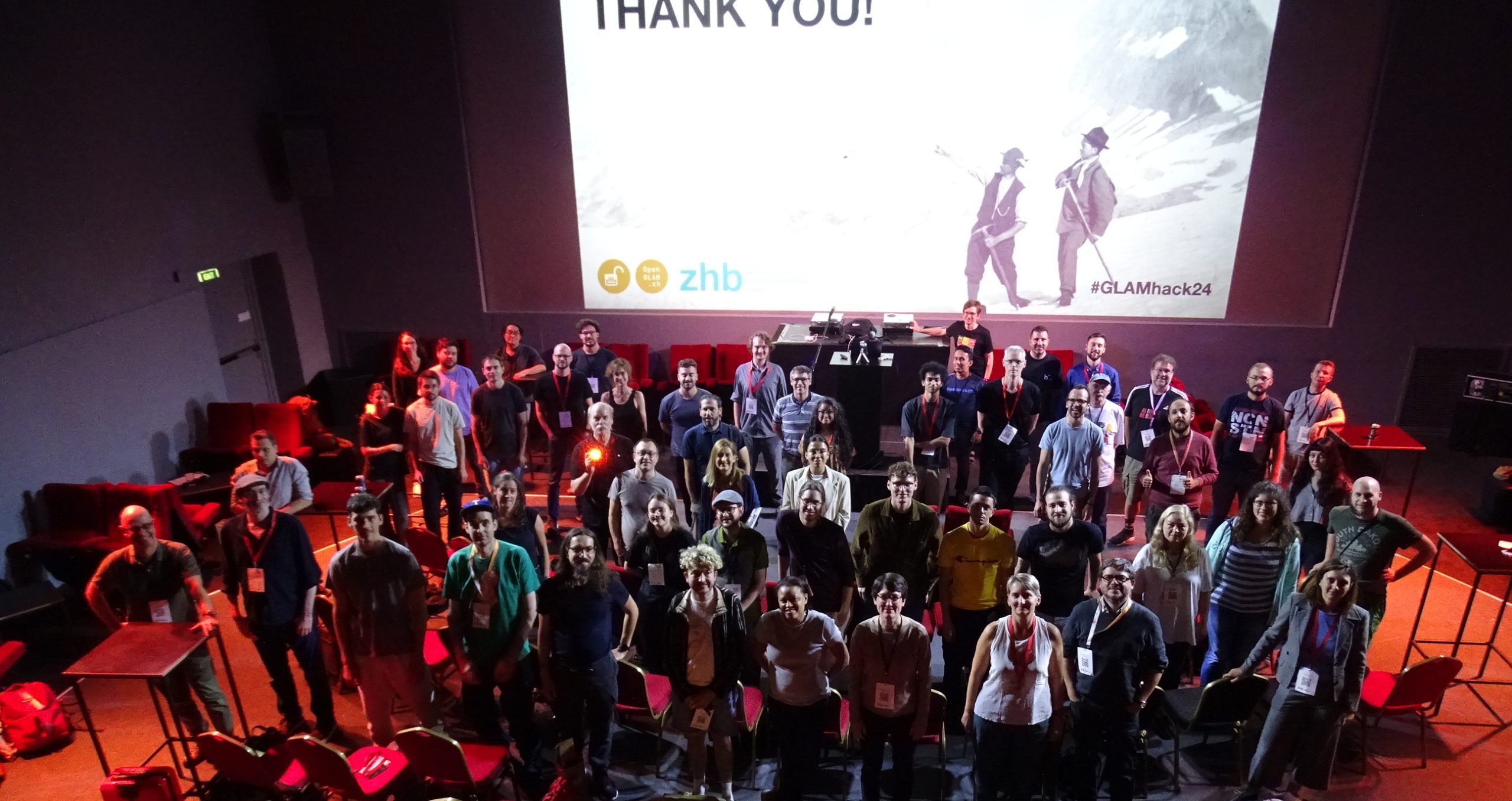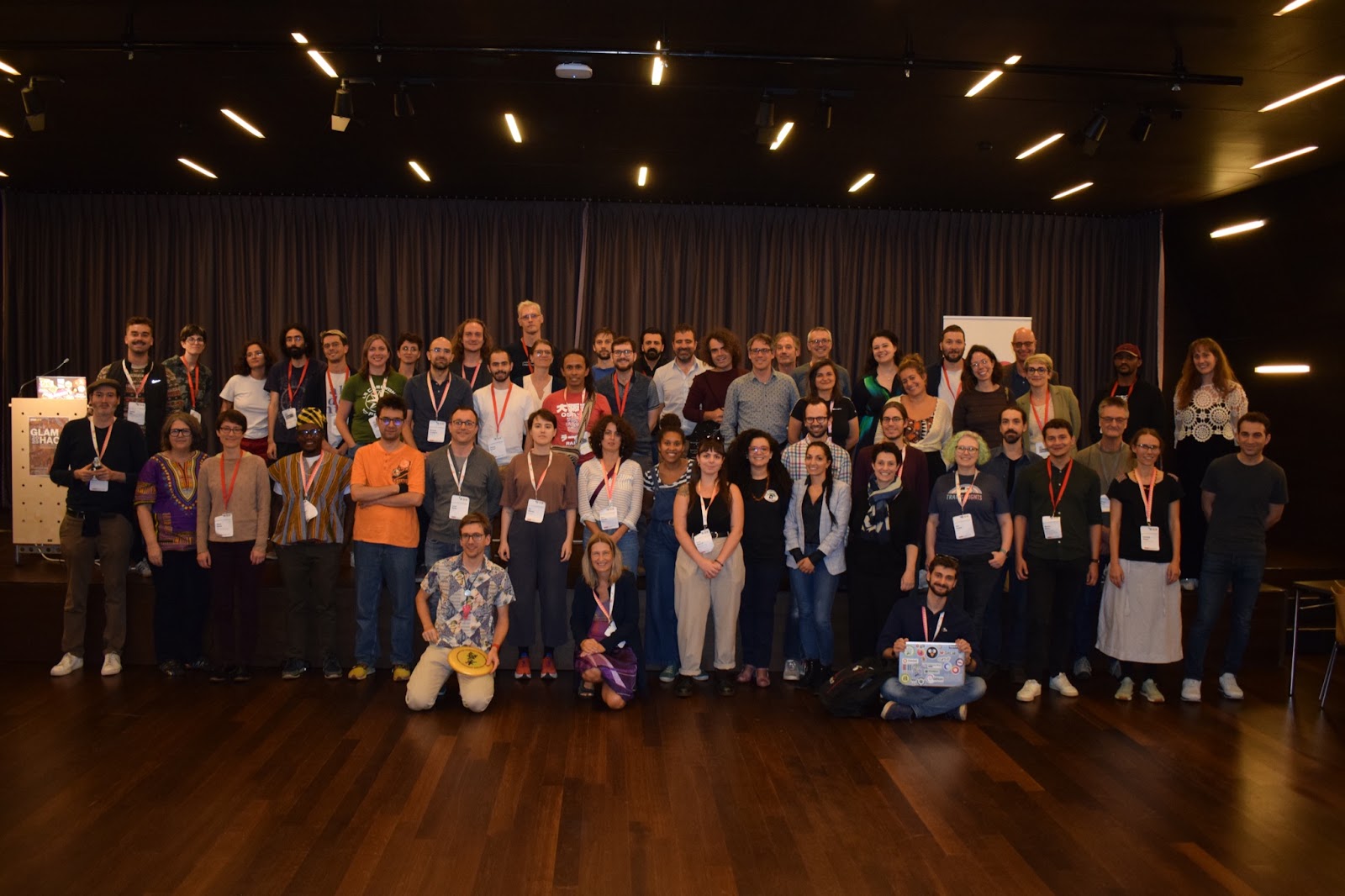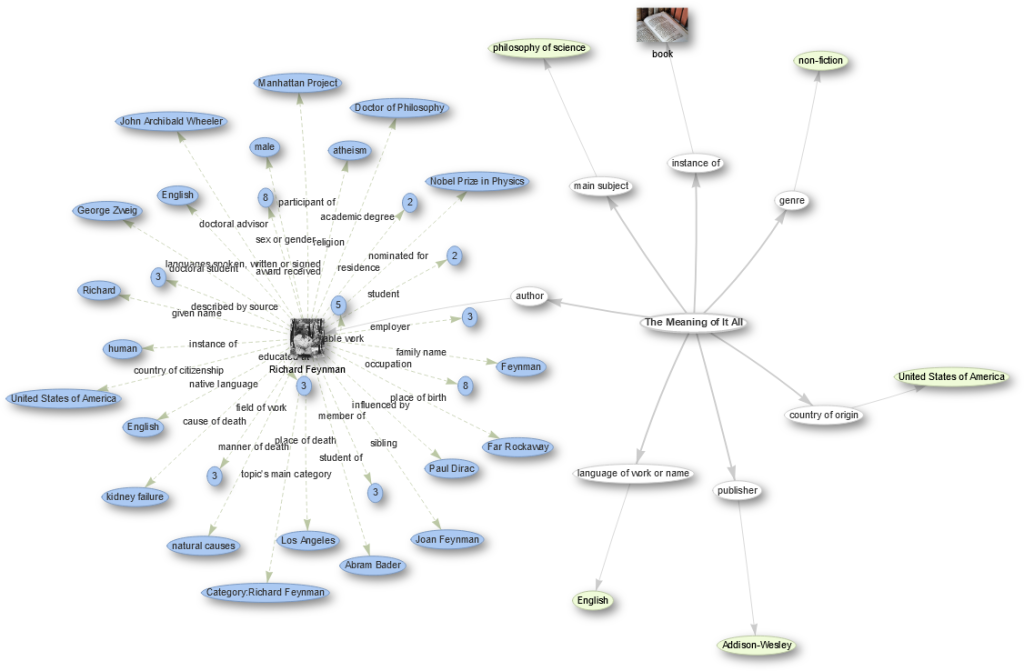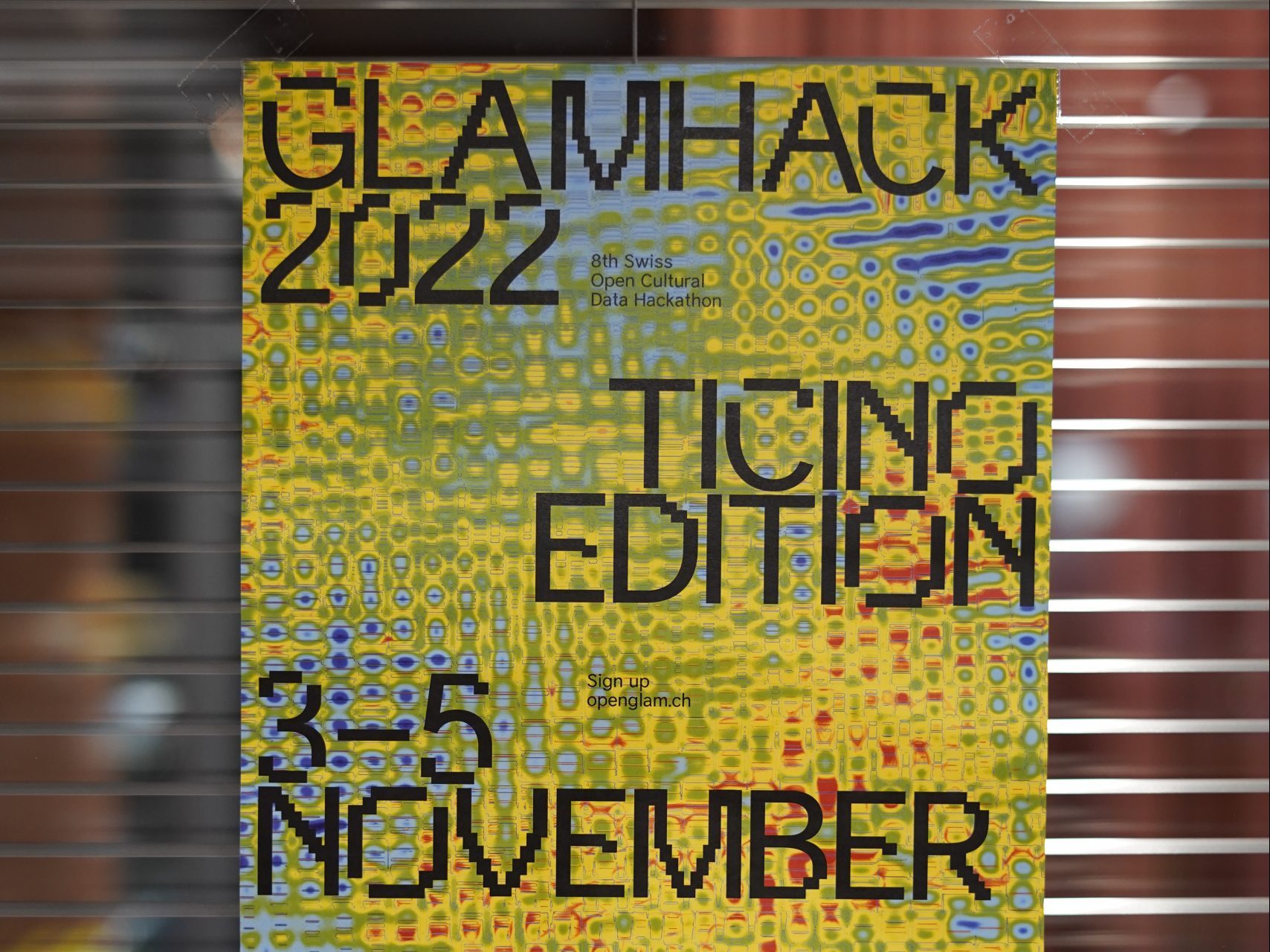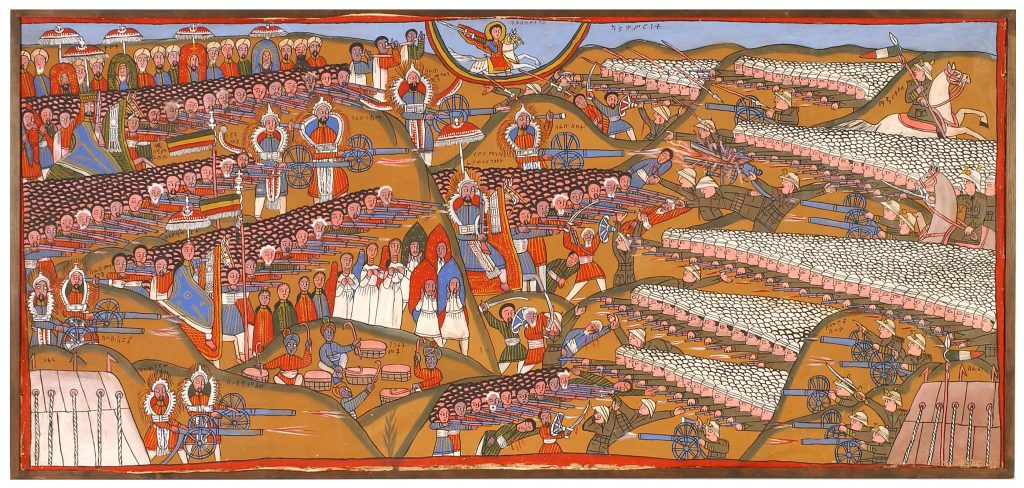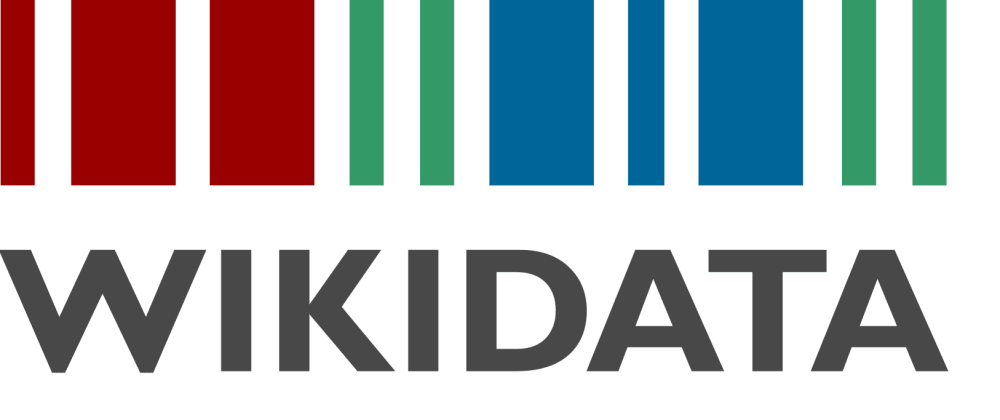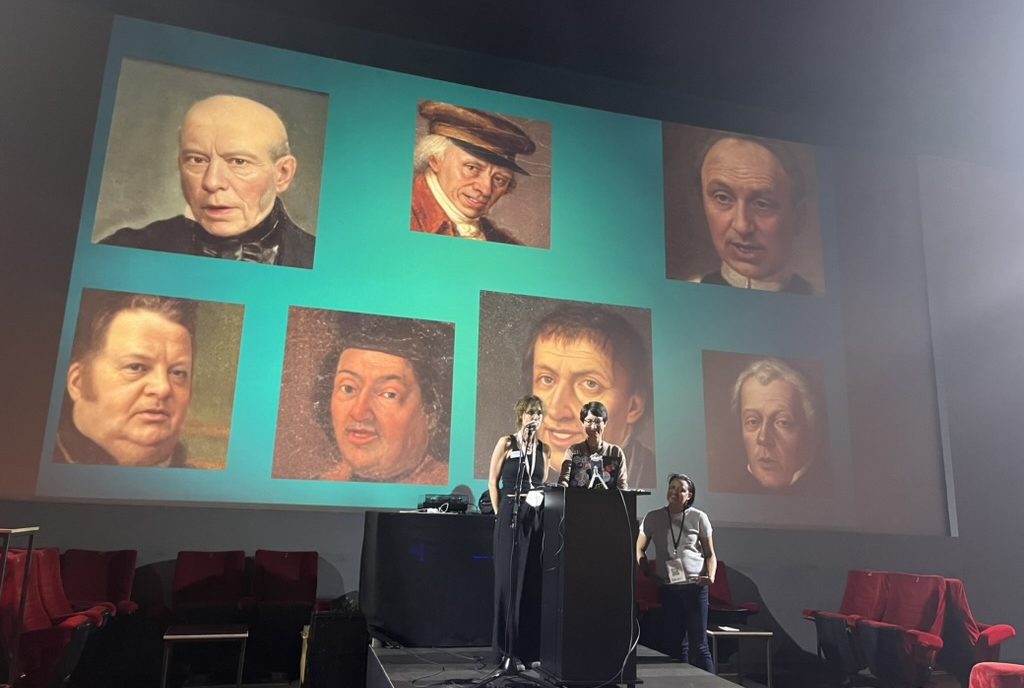OpenGLAM Working Group
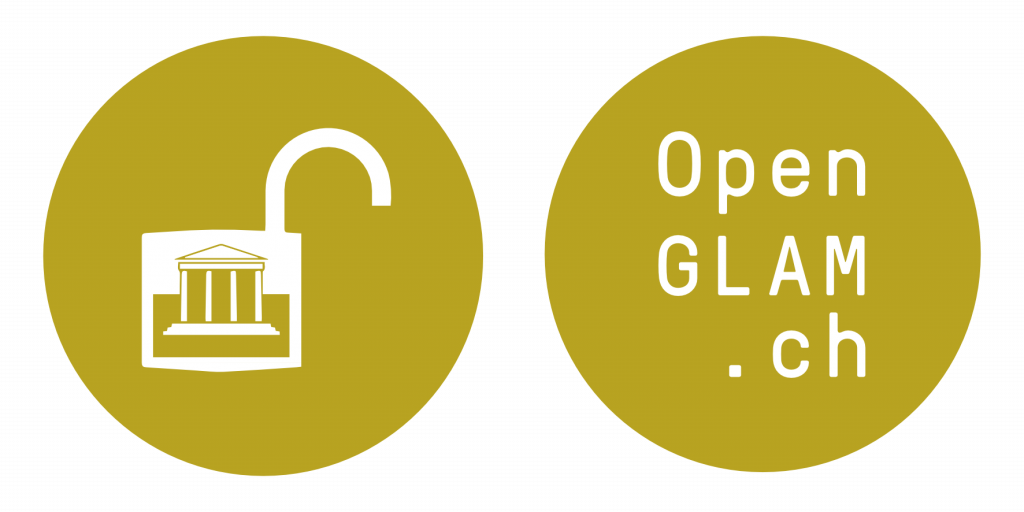
The OpenGLAM (Open Galleries, Open Libraries, Open Archives and Open Museums) CH Working Group brings together representatives of heritage institutions, NGOs, research and education, service providers, and funding institutions, in order to promote and facilitate the adoption of the OpenGLAM Principles in Switzerland.
OpenGLAM Principles
The OpenGLAM Principles have been adopted by the international OpenGLAM Working Group of the Open Knowledge Foundation in 2013 and stipulate how heritage institutions shall support the advance of humanity’s knowledge by opening up their collections. The five rules heritage institutions are invited to follow are:
- Release digital information about the artefacts (metadata) into the public domain using an appropriate legal tool […]
- Keep digital representations of works for which copyright has expired (public domain) in the public domain by not adding new rights to them.
- When publishing data make an explicit and robust statement of your wishes and expectations with respect to reuse and repurposing […]
- When publishing data use open file formats which are machine-readable.
- Opportunities to engage audiences in novel ways on the web should be pursued.
A full version of the OpenGLAM Principles can be found on the website of the international OpenGLAM Working Group.
Friends of OpenGLAM
Our “Friends of OpenGLAM” Working Group unites individuals and organizations supporting the cause of OpenGLAM in Switzerland. – Interested? Join us now!
By becoming a “Friend of OpenGLAM” as an individual you decide to act as an advocate of OpenGLAM in Switzerland and to give our movement a face (or one of many faces so to say). Members of the “Friends of OpenGLAM” Working Group will be listed on our website, so that they can be contacted by people in their environment who would like to learn more about OpenGLAM. Word of mouth among peers is indeed very important for the propagation of the values and the practices related to OpenGLAM.
By joining the network as an organization you publicly commit yourself to the OpenGLAM principles (if you are a heritage organization) and help us secure the long-term financial foundation of our activities, most notably the organization of the annual GLAMhack and our involvement in surrounding events (hackdays, pre-events, workshops, and outreach activities at various other events).
How to become an individual member?
In order to become a member of the OpenGLAM Working Group, fill in the registration form. You will then be asked to pay the annual membership fee, which currently is fixed at CHF 60 (CHF 20 for students).
How to join as an organization?
In order to sign your organization up as a member of the OpenGLAM Working Group, fill in the registration form. Alternatively, you may also contact us at info@opendata.ch.
Organizations pay a minimum annual membership fee of CHF 1’000 (smaller organizations with up to 25 FTE) or CHF 2’000 (larger organizations with more than 25 FTE), respectively. These membership fees indicate the minimum contribution, the exact amount being at the discretion of the individual organization.
Organizations paying the annual membership fee of the “Friends of OpenGLAM” Network are entitled to become members of the Opendata.ch association without paying an extra membership fee (presently, ordinary organizational members of the opendata.ch association pay an annual fee of CHF 450).
Motivation
The “Friends of OpenGLAM” Working Group was launched in 2017 in order to give the members of the OpenGLAM movement in Switzerland more visibility and to provide a long-term financial foundation for our activities given the increased difficulties encountered in our yearly fundraising effort for the hackathon. In fact, some of our recurrent sponsors have announced that they will not be able to support the hackathon on a regular basis in the future, which adds another touch of urgency. If the financial situation allows for it in the future, we would also like to develop further activities, and we are looking forward to involving you – the members of our network – in our planning process.
While membership in the Working Group is not a requirement for institutions who would like to make their data available for the annual hackathon, we strongly encourage regular data providers to also support us by officially becoming a “Friend of OpenGLAM”. But this is not an obligation; if you are able to make your data available as open data, but are presently unable to join the network for whatever reason, we are still happy to advertise your data in the context of the hackathon.
Hackathons
Once a year, the Swiss OpenGLAM Working Group brings together data providers, software developers, digital humanists, artists, Wikimedians/Wikipedians, and other interested people in order to experiment how cultural data and content can be used for research purposes, for web and mobile apps, in the context of Wikipedia, for artistic re-mixes, or for other forms of re-use.
As the participants‘ survey of the first Open Cultural Data Hackathon in Switzerland has shown, the event has been highly effective in terms of networking, spurring and exchanging ideas, as well as promoting access to cultural data. Roughly half of the participants also appreciated how skills and know-how had been shared. You can find all information about upcoming and past hackathons here. You can also learn more about the OpenGLAM Survey which is an online survey that has been conducted among heritage institutions throughout the world during 2014-2016 here.
Stay up to date
Our quarterly newsletter keeps you up to date about what’s going on in the OpenGLAM community. We provide concise and relevant information about current projects and events in Switzerland and abroad. Get the latest news once every season!
Resources
This page contains a selection of links, case studies and guidelines related to topics relevant to OpenGLAM which may be useful to heritage institutions.
